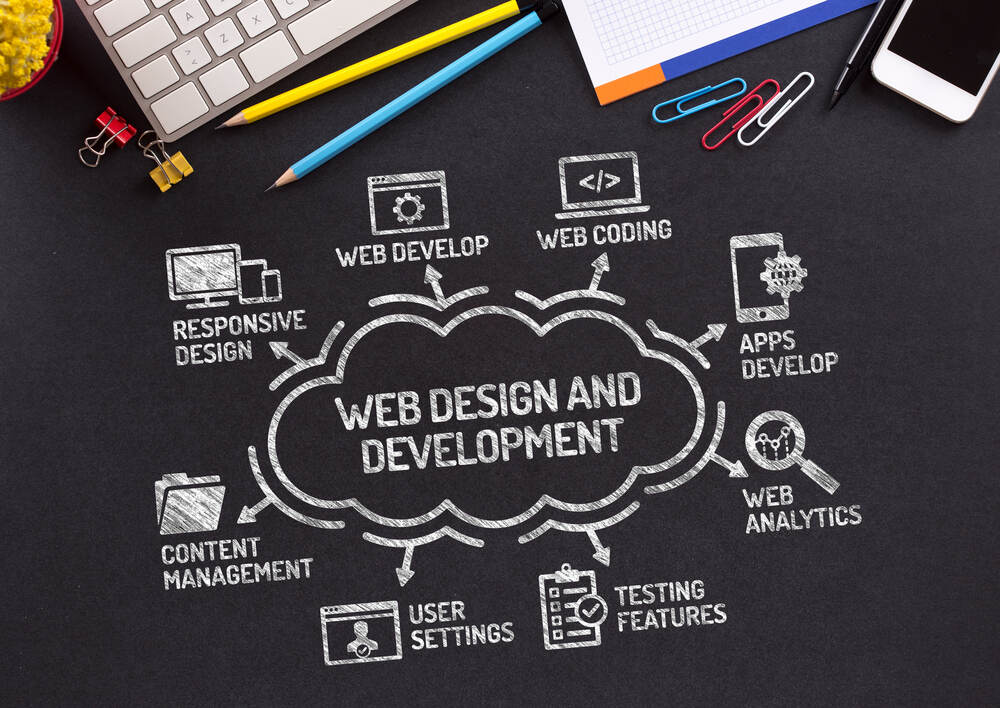Top Trends in Website Development for 2025
As we step into 2025, the landscape of website development continues to evolve at a rapid pace. Driven by advancements in technology, changing consumer behavior, and the demand for seamless digital experiences, businesses must stay ahead of the curve to remain competitive. From enhanced user interfaces to intelligent automation, the latest trends in website development services reflect a deeper focus on personalization, speed, and interactivity.
Whether you’re a startup seeking custom website development or an established brand revamping your digital presence, understanding these trends is essential. Let’s explore the top trends shaping website development in 2025.
1. AI-Powered Personalization
Artificial Intelligence (AI) is playing a pivotal role in crafting more personalized user experiences. Websites in 2025 are expected to leverage AI not just for chatbots or automation, but also for real-time content adjustments based on user behavior. By analyzing visitor data, AI can suggest products, display relevant blog posts, or adjust navigation paths—all enhancing engagement and conversions.
Custom website development now often includes AI integration, enabling businesses to tailor experiences that feel intuitive and user-focused.
2. Voice Search Optimization
With the increasing use of voice assistants like Alexa, Siri, and Google Assistant, voice search optimization is becoming indispensable. Websites must now be structured to understand and respond to natural language queries. This impacts not only SEO strategies but also the overall design and functionality of a website.
Website development services are adapting by implementing schema markup, long-tail keywords, and conversational interfaces that support voice interactions. In 2025, voice will be as crucial as mobile responsiveness.
3. Responsive Web Design Goes Beyond Mobile
Responsive web design is no longer a new concept—but in 2025, it’s expanding beyond mobile. Today’s digital users access websites through smartwatches, VR headsets, foldable devices, and even in-car displays. Websites must adapt fluidly across all these platforms.
A modern responsive web design ensures consistent user experience regardless of the device. Web developers now use flexible grids, advanced CSS media queries, and dynamic content scaling to meet this demand. As accessibility becomes more prioritized, expect responsive design to also cater better to users with disabilities.
4. Progressive Web Apps (PWAs)
Progressive Web Apps are bridging the gap between web and mobile applications. These are websites that behave like native apps—with offline capabilities, push notifications, and fast loading times.
In 2025, PWAs are essential components of many website development services, particularly for businesses that need mobile-friendly functionality without investing in full app development. Whether you’re in retail, education, or media, PWAs offer an efficient way to boost user engagement and retention.
5. E-commerce Website Development Innovations
The e-commerce industry continues to lead the way in digital innovation. In 2025, e-commerce website development will heavily incorporate technologies like AR (Augmented Reality) for virtual try-ons, 3D product displays, and one-click checkout options powered by biometric verification.
Moreover, consumers demand a seamless, secure, and fast shopping experience. Integrating AI for personalized product recommendations and chat support, along with robust payment solutions, is now standard. Businesses investing in custom website development for e-commerce must consider these tools to stay competitive.
6. Green Hosting and Sustainable Design
Environmental consciousness is influencing digital decisions. Developers and businesses are becoming more aware of their website’s carbon footprint. Green hosting solutions, optimized code for energy efficiency, and minimalist designs that reduce server load are increasingly popular.
This trend is making its way into custom website development projects where sustainability is becoming a brand value. Websites that consume fewer resources not only help the planet but also load faster and perform better in search engine rankings.
7. No-Code and Low-Code Development Platforms
No-code and low-code platforms are revolutionizing how websites are built. While they won’t replace complex website development services, they provide non-tech users the tools to build simple websites or prototypes quickly.
For startups and small businesses with tight budgets, these platforms offer an alternative to full-scale custom website development. However, for complex needs—especially e-commerce website development or advanced integrations—professional developers still play a critical role.
8. Enhanced Cybersecurity Features
With cyber threats on the rise, security is no longer optional. Websites in 2025 are integrating stronger security protocols, including multi-factor authentication, real-time threat detection, and encrypted data storage.
Security is a top concern especially for e-commerce website development, where customer data and transactions must be protected. Website development services now include cybersecurity audits and compliance checks as part of their standard offerings.
9. Motion UI and Micro-Interactions
Adding subtle animations and micro-interactions can significantly enhance the user experience. In 2025, motion UI isn’t just about aesthetics—it’s about guiding users, providing feedback, and making websites more intuitive.
From animated buttons to scroll-based transitions, responsive web design is becoming more interactive and engaging. These elements improve the time users spend on a site and lead to higher conversions.
10. API-First Development
In a world where websites must integrate with CRMs, ERPs, and other third-party tools, API-first development is becoming the norm. This approach ensures flexibility and scalability, allowing sites to grow with the business.
API-first methodology is crucial for custom website development projects where unique business processes or platforms need seamless integration. It allows developers to build websites that are modular, efficient, and adaptable.
Conclusion
The trends in website development for 2025 reflect a future where user experience, technology, and business goals align more closely than ever before. Whether you’re looking to launch a new platform or revamp your current site, investing in professional website development services is key to staying relevant in this fast-paced digital era.
From responsive web design to advanced e-commerce website development, and from AI personalization to sustainable coding practices, the possibilities are expansive. Stay updated, stay secure, and most importantly—design with the user in mind.

